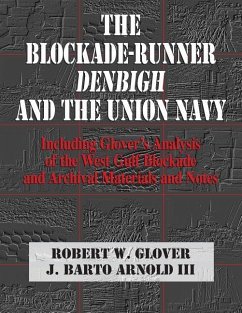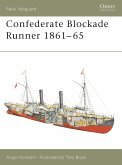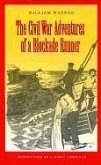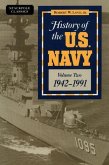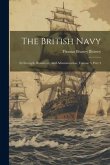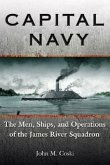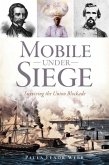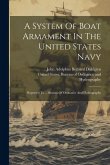To effectively study the Civil War blockade-runners, we must consider the perspective of their opposition, the Union blockading fleet. The purpose of the Union blockade was to choke off the supplies brought in by the runners supporting the Confederacy and the cotton shipped out in order to pay for these supplies. This book is number seven in a series presenting the results of the Denbigh Shipwreck Project. There are four sections in this book, all providing context for the blockade-runner Denbigh and the West Gulf Blockading Squadron. First is a history and analysis of the West Gulf Blockading Squadron by Robert W. Glover covering mostly the Union's activities off Texas. Glover concentrates on the Union activities against the runners rather than that fleet's extensive initiatives on the Mississippi River. Context is also provided in section two with memoirs by several Union naval officers. There are also official reports to the Navy Department, and Union vessel log entries that deal directly with the Denbigh. Section three presents archival documents concerning payment of prize money generated by capturing cotton bales jettisoned by the Denbigh in escaping capture. We trace the present the prize court documents and the Navy Department records down to the exact prize money payments to individual Union officers and crewmen of two blockading ships at Galveston showing how the calculations were made. The fourth and last section presents the numerous prize case documents of a particularly nasty squabble between several Union captains involved in the capture of merchant steamer Alabama on a run from Havana to Mobile. The Alabama was thought to be a sister ship of the Denbigh owned by the same blockade-running firm in England. The Denbigh was an iron-hulled paddle steamer. A Liverpool coastal passenger ship built by Laird's shipyard in 1860, she was noted for her speed. As a blockade-runner in the Gulf of Mexico from 1863-1865, she was one of the most successful and famous of the Civil War. Mobile and Galveston were the Confederacy's ports of call for the blockade-runner Denbigh, a shipwreck excavated by the Institute of Nautical Archaeology. The Denbigh ran aground entering Galveston in late May 1865 and was destroyed by the Union blockading fleet. This book considers the activities of the West Gulf Blockading Squadron of the Union navy in taking captive as prizes of war vessels that ran the blockade. It discusses the Union navy's modus operandi and attempts to address the behaviors of the opposing sailors and the how's and why's thereof. Detailed examples are provided for a few particular ships taken off Galveston and Mobile. Archival documents are extensively illustrated and transcribed. Some of the incidents and documents in the present book reference the Denbigh herself and the rest help explain the activities of this ship and her sisters in the runner's trade. Understanding the prize game enhances greatly the understanding of blockade-running. We find it particularly important and interesting to combine historic overviews like Glover's with illustrating examples of archival documents generated by the activities of both sides The most basic context for the Denbigh is the 1863-1865 activities of the blockade-runners going to and from Galveston and other western Gulf ports. One important question is how and why the blockaders and the runners did their respective jobs. It was an intricate and complex game of cat and mouse. The operational behavior of both groups was largely influenced by the law of prize. The result is important both to those generally interested in the Civil War and especially to those interested in the history and nautical archaeology of blockade-runners.
Hinweis: Dieser Artikel kann nur an eine deutsche Lieferadresse ausgeliefert werden.
Hinweis: Dieser Artikel kann nur an eine deutsche Lieferadresse ausgeliefert werden.

